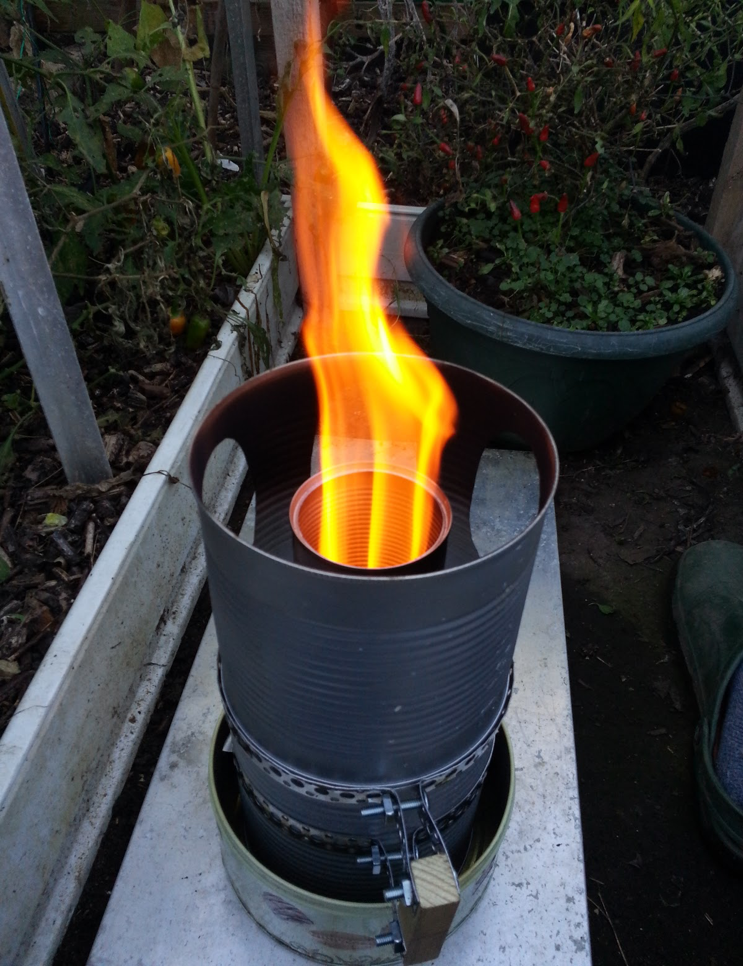2050kids Cookstove Challenge kicks off this month with Boy Scouts signing up to join a select group of cookstove test drivers from around the world. The scouts from Troop 118 in Sacramento, CA picked up their starter kits and instructions August 9 to begin building ten biochar-producing Climate Rescue Can cookstoves from large tin cans recycled from local stores and restaurants.
The scouts’ challenge ends September 18 with a cook-off where prizes will be awarded to the three top stoves based on the criteria of stove performance, cook time, and construction.
The Climate Rescue Can is a biochar-producing cookstove with an uncomplicated design. It is constructed from empty tin cans using basic hand tools and simple materials. 2050kids is testing this cookstove for use in communities around the world which are most threatened by climate change and have few resources to adapt. The cookstove will help people produce biochar to improve their gardens and farms. It also reduces exposure to harmful household air pollution in communities where meals are traditionally cooked using highly toxic cookstoves.
[title type=”h2″]Why Biochar? [/title]
By 2050, climate change from carbon emissions is expected to drastically alter the lives of some 9.7 billion people. In the decisions all of us make today, we need to find ways to reduce the levels of carbon in the atmosphere. This includes rethinking how we grow food, how we manage forests and farmlands, and even how we cook our meals.
Biochar could be a game changer in addressing climate change. Scientists have discovered that this simple charcoal, which was first used by Native Americans to enrich their soil, has the ability to store harmful carbon for thousands of years. Experts suggest that it has the potential to store one gigaton of carbon per year by 2050.

[title type=”h2″]Participate in the Challenge[/title]
Join volunteers from Uruguay, Panama, and the United States in the 2050kids Cookstove Challenge! The Cookstove Challenge team provides detailed instructions and a survey for participants to provide feedback to help us improve the stove design and the instructions. The build-it-yourself cookstove model, which comes in two sizes, has been designed so that it can be constructed from locally sourced materials using non power tools. For information about participating in the challenge, contact info@2050kids.org.
Learn more about how your support extends 2050kids’ global reach, expands our climate change mitigation strategies, and enhances our unique partnership approaches.

